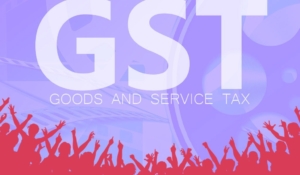Company incorporation businesses operating in Singapore are emphasized on hiring accounting services Singapore to deal with Goods and Service Tax (“GST”) compilation internally. Inland Revenue Authority of Singapore (“IRAS”) has increased its severity against non-compliance businesses, and it is tracking down businesses that steer clear from paying taxes and GST on time. Here, we are going to learn the tips to help businesses to become compliant to GST registration rules. However, they should also consider hiring payroll services, secretarial services, and corporate tax services to avoid getting penalized.
Tip#1: Prepare your record-keeping practices comprehensively
Many savvy businesses are often investigated under the pretense of not paying taxes on time. While majorities of the businesses strive to pay taxes on time, some may unintentionally forget to compile and submit the paperwork to the IRAS on time.
However, if you want to refrain from getting penalized; you should work with the best accounting firm in Singapore to prepare your taxable turnover at the end of a fiscal year/calendar year. As soon as your taxable turnover reaches the $1million rank, you should compulsory to Register GST with IRAS.
Tip#2: Register early
You cannot depend on the last minute to register for the GST. Prolonging your submission will only complicate the matter, which is something you cannot afford if you are trying to avoid getting penalized. Instead, businesses should register for GST as soon as their taxable turnover increases $1 million. The IRAS audits have revealed that businesses failing their registration for GST simply assumed that they will not reach the $1 million mark, which should be avoided at all costs.
IRAS initiatives to improve GST compliance
While the IRAS may have implemented strict rules for those who fail to pay GST on time; it has comparatively simplified its process to encourage businesses to pay for taxes on time. According to the new rule, businesses can rather pay their GST on a calendar-year basis rather than paying it on a quarterly basis.
Furthermore, IRAS has issued a digital calculator to help businesses to calculate their GST online. It also helps businesses to determine their eligibility to pay taxes as per the new rules. The web-based calculator is intuitive to use, and it is a futuristic approach for businesses to calculate their GST for an annual year.
Lower penalties for full voluntary disclosure
In addition to simplifying the process, the IRAS is encouraging businesses to step forward to get qualified for a lower penalty for their non-compliance activities. If IRAS finds businesses that hasn’t registered for the GST, it will impose a penalty that would allow businesses to pay GST on their past transactions. Businesses are required to pay for GST under all circumstances, and if a business still refuses to step forward then, it will be required to pay a penalty of $100,000 upfront.



QUICK ENQUIRY FORM